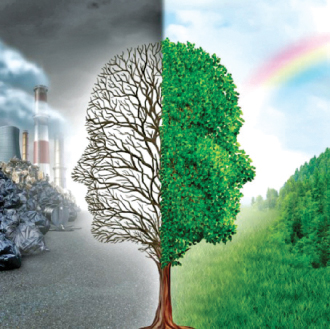Healing Anger and Power of
Patience in Buddhist
Perspective
 Kumburuwela Seelananda Thero Kumburuwela Seelananda Thero
B.A. (Hons) (University of Peradeniya),
M.A. (University of Kelaniya),
Royal Pandith (OSS),
M.Phil. (Candidate) (PGIHS – University of Peradeniya)
Anger can be identified as a number of consequences, some of which can be
considered the following symptoms. Violent thoughts, nightmares, headaches,
physical injuries, high blood pressure, social unhappiness, lack of love, lack
of job promotions, addictions, discrimination, destruction of property, failure
to help others, use of obscene language, murder, and the suffering of the world
by maintaining anger until death.
 “Through kindness, one should overcome anger” (Akkodhena jine kodham Dhammapada
XVII.223). According to this line of the stanza, we can identify that with
practicing a patience mind can overcome anger. Anger is one of the most
dangerous obstacles in our day-to-day life. In this strange time, the whole
world is paying attention to health. This can be due to the influence of the
mental and physical health of the person, the relationship between the body and
mind. One of the most talked-about topics in mental health is Anger. “Through kindness, one should overcome anger” (Akkodhena jine kodham Dhammapada
XVII.223). According to this line of the stanza, we can identify that with
practicing a patience mind can overcome anger. Anger is one of the most
dangerous obstacles in our day-to-day life. In this strange time, the whole
world is paying attention to health. This can be due to the influence of the
mental and physical health of the person, the relationship between the body and
mind. One of the most talked-about topics in mental health is Anger.
Accordingly, the need for some technique or exercise to control and reduce Anger
has become more prevalent in today’s society. Therefore, the purpose of this
article is to draw the reader's attention to the Buddhist teachings on
controlling Anger.
Buddhist psychology teaches that Anger represents Dosa, which is one of the main
three sins and that is a bad emotion. There are many factors that cause anger.
The impact of those factors can vary from person to person. Identifying these
factors or avoiding them or removing them from oneself and applying the
teachings of the Buddha to them are considered as a way to control anger.
According to Vitakkasanthana Sutta, there are some solutions for the management
of Anger. They are.
 According to those facts of the Anger management, people can take solutions
through the practicing Buddhist teachings for the heat of it. If we are
attentive to the kindness of others, and overlook their unkindness and can
practice to deploy compassion for all beings, putting our enemies first in our
meditations, it is worthy to tranquil our Anger. Using our wisdom we can analyze
anger meditatively, understand its cause and effect; then can approach the
problems with patience. For example, the contemplating bad effect on the getting
anger it is a good way to tame our mind. The very heal of anger obscures our
minds. It causes a lot of damage to the person, those around him and as well as
physical objects. According to those facts of the Anger management, people can take solutions
through the practicing Buddhist teachings for the heat of it. If we are
attentive to the kindness of others, and overlook their unkindness and can
practice to deploy compassion for all beings, putting our enemies first in our
meditations, it is worthy to tranquil our Anger. Using our wisdom we can analyze
anger meditatively, understand its cause and effect; then can approach the
problems with patience. For example, the contemplating bad effect on the getting
anger it is a good way to tame our mind. The very heal of anger obscures our
minds. It causes a lot of damage to the person, those around him and as well as
physical objects.
Accordingly, anger can be identified as a number of consequences, some of which
can be considered the following symptoms. Violent thoughts, nightmares,
headaches, physical injuries, high blood pressure, social unhappiness, lack of
love, lack of job promotions, addictions, discrimination, destruction of
property, failure to help others, use of obscene language, murder, and the
suffering of the world by maintaining anger until death.
According to Akkosa Sutta, there are many ideas about healing anger. When a
person gets angry at the first person, he gets angry then that person gets sad.
The person who does not turn back to the first with anger, then he wins the war
of grief. Accordingly, it is important for everyone in society to be concerned
about controlling anger. It is not wrong to say that all those who have not
attained Nirvãna experience anger. Therefore, it is more important to understand
the way of healing anger.
One of the most important teachings for the restraining Anger is contemplating
Buddhist Karmic consequences. Accordingly, the utterance of bad words, actions,
and thoughts can lead to bad results. Anger is a bad emotion that causes many
bad behaviors, difficulties, violence. The consequences of all these can be
devastating and ollowing the Buddhist theory of Karma, it easiest way to
understand how anger causes a person to suffer. It is important to try to get
rid of anger wherever it arises, as it can cause you a lot of grief, even it is
caused by others.
The great teacher and author of Bodhicaryãvatra, Sãntideva has mentioned the
Anger management. “Anger is the greatest evil; patient forbearance is the
greatest austerity” (Na ca dvesasamam papam na ca ksantisama tapah - VI.02).
Even if it is not always easy to keep in touch with following the teaching of
the Buddha for the healing Anger, having understood the previous facts
throughout the essay we should be mindful enough to develop the facts that are
healing Anger and using the power of patience. It would be worthwhile for you to
maintain good physical and mental health. |
